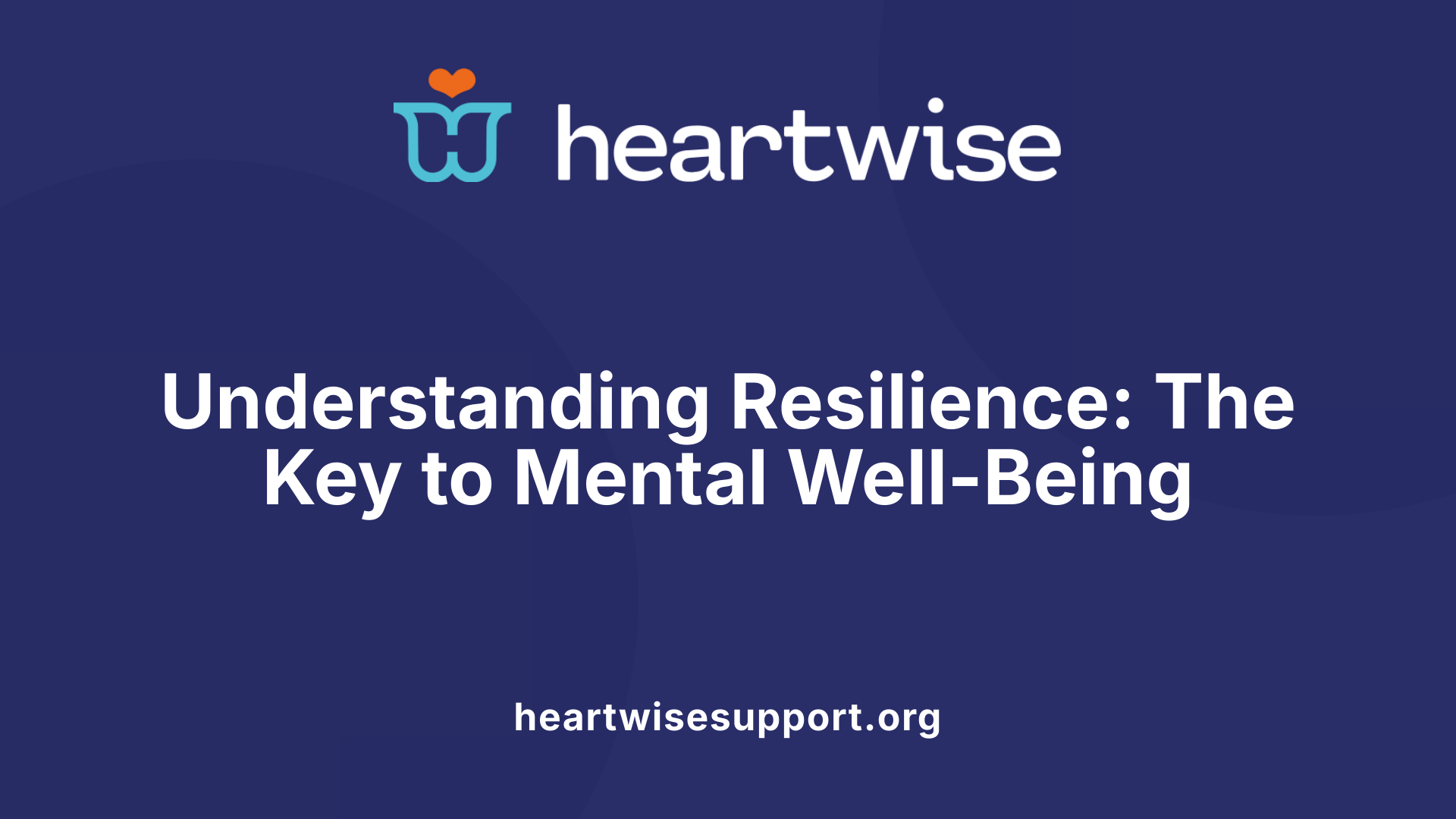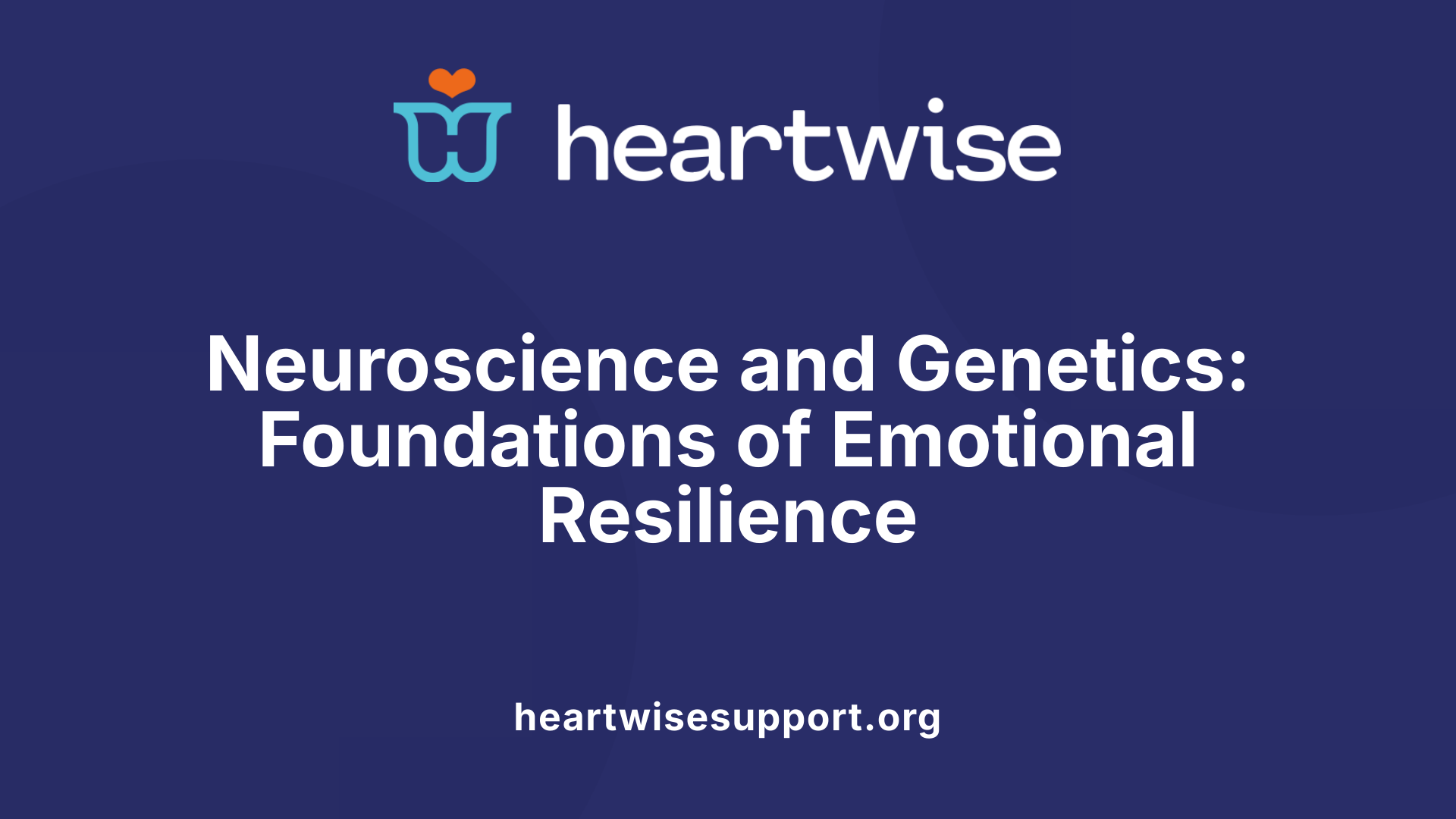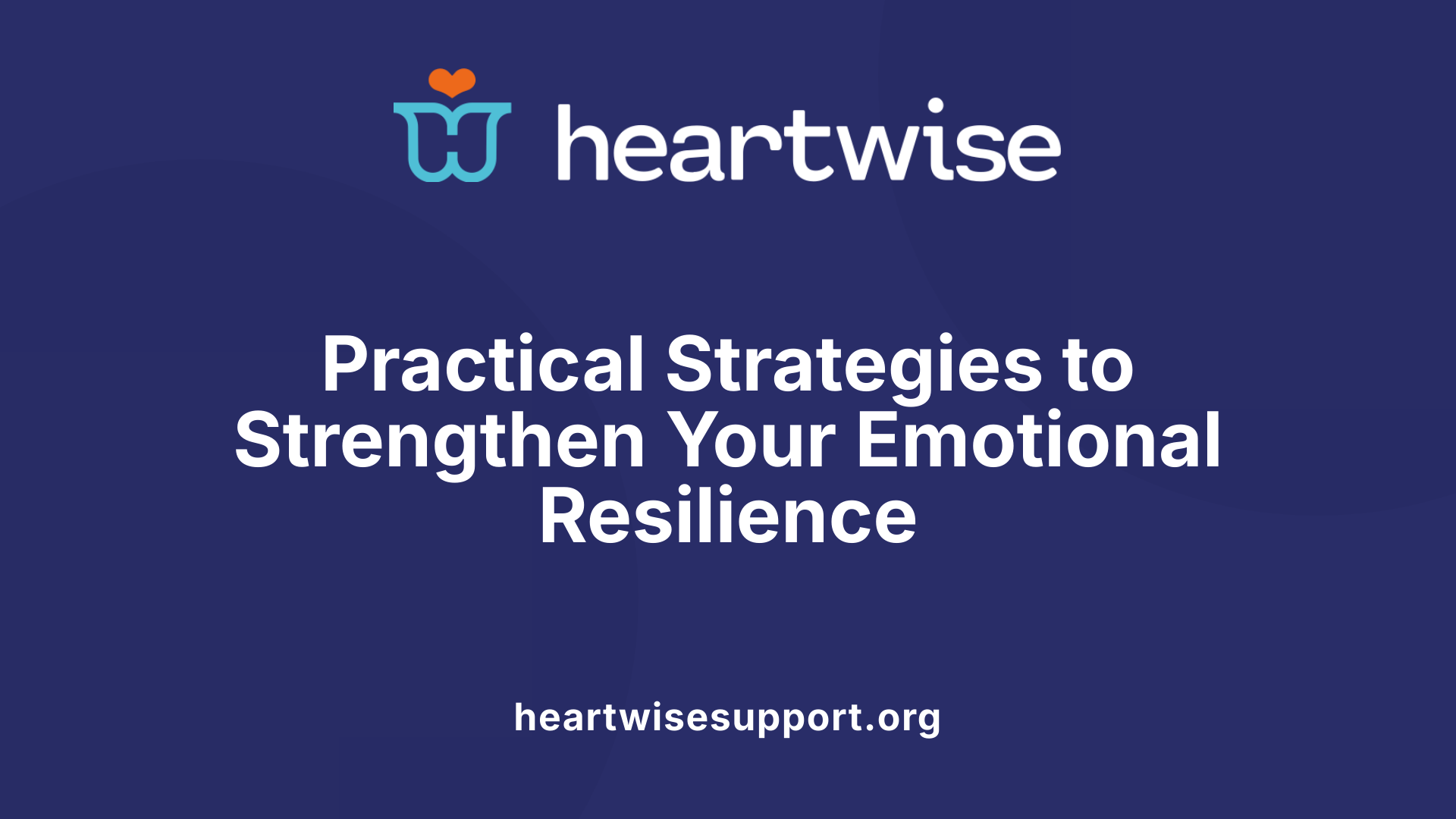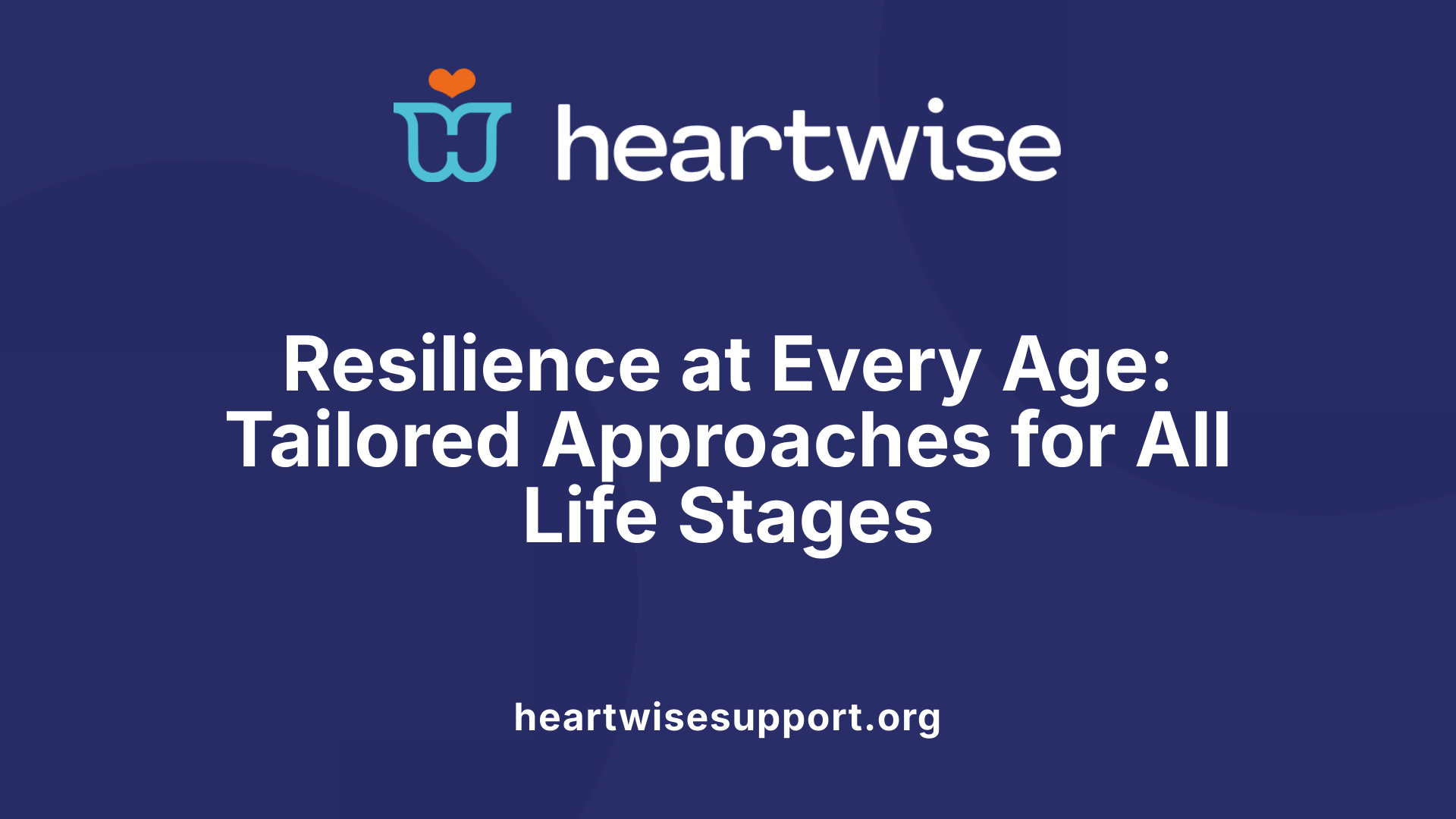Understanding Emotional Resilience and Its Importance
Mental health strategies aimed at building emotional resilience focus on enhancing our capacity to adapt, recover, and thrive despite life's inevitable stresses and adversities. Resilience is not just a personality trait but a set of behaviors, thoughts, and actions that anyone can learn and develop. This article explores core concepts, scientific insights, practical techniques, and age-appropriate strategies to foster resilience across the lifespan.
Defining Resilience and Its Roots in Mental Health

What are the core concepts of mental health and resilience, and why are they important?
Mental health is a broad concept that encompasses emotional well-being, the ability to manage stress, and the capacity to form meaningful relationships. An essential part of mental health is resilience, which refers to both the process and the outcome of adapting positively to challenges, stress, and adversity.
Resilience involves behaviors, thoughts, and actions that anyone can learn and develop over time. It helps individuals bounce back from setbacks, maintain hope, and find purpose even during difficult times. By fostering resilience, people are better equipped to handle life's uncertainties and to sustain their mental health.
This concept is vital because resilient individuals tend to experience lower levels of stress, anxiety, and depression. They are more likely to recover from trauma and maintain a sense of control and connection. Social support, positive thinking, self-care practices, and behavioral skills contribute to strengthening resilience.
Both mental health and resilience are influenced by personal attributes such as optimism, self-esteem, and emotional awareness, as well as external factors like community support, quality education, and socioeconomic conditions. Recognizing and building these protective factors promote overall well-being and help prevent mental health conditions.
In summary, understanding and nurturing resilience enhances not only individual mental health but also contributes to healthier communities. Developing resilience supports personal growth and ensures that everyone can better navigate stressors and challenges, leading to stronger, more adaptive societies.
Scientific and Clinical Insights into Emotional Intelligence and Resilience
 Recent scientific insights have shed light on the biological and psychological foundations that underpin emotional intelligence (EI) and resilience. Neuroscientific research indicates that certain brain regions, notably the amygdala and prefrontal cortex, play crucial roles in how individuals perceive, regulate, and respond to emotional stimuli. The amygdala is involved in processing fear and emotional reactions, while the prefrontal cortex helps modulate these responses and facilitates emotional regulation. The functional connectivity between these areas influences a person's capacity to manage stress and adapt to adversity.
Recent scientific insights have shed light on the biological and psychological foundations that underpin emotional intelligence (EI) and resilience. Neuroscientific research indicates that certain brain regions, notably the amygdala and prefrontal cortex, play crucial roles in how individuals perceive, regulate, and respond to emotional stimuli. The amygdala is involved in processing fear and emotional reactions, while the prefrontal cortex helps modulate these responses and facilitates emotional regulation. The functional connectivity between these areas influences a person's capacity to manage stress and adapt to adversity.
Genetic factors also contribute significantly to resilience and EI. Specific gene polymorphisms, such as those in BDNF, 5-HTTLPR, and CRH receptor genes, affect neural circuits related to reward, fear, and social behavior. These genetic influences, combined with environmental experiences, shape how resilient an individual can become and how effectively they process emotional information.
Psychotherapeutic interventions leverage insights from neuroscience to enhance resilience. Approaches like mindfulness meditation focus on strengthening the neural pathways involved in attention and emotion regulation. Cognitive-behavioral therapy (CBT) helps reframe negative thought patterns and improves emotional stability. Resilience training programs emphasize skills such as problem-solving, social connectivity, and self-awareness, which are supported by neuroplasticity—the brain’s ability to reorganize itself in response to learning.
Research shows that individuals with higher EI and resilience tend to experience fewer mental health issues, lower perceived stress, and are better equipped to cope with traumatic events. These findings underscore the importance of an integrated approach combining biological, psychological, and behavioral strategies for enhancing mental health.
| Scientific Focus | Key Findings | Implications |
|---|---|---|
| Brain regions involved | Amygdala, Prefrontal Cortex | Critical for emotion processing and regulation |
| Genetic influences | Polymorphisms in BDNF, 5-HTTLPR | Affect neural circuits related to resilience |
| Psychotherapeutic strategies | Mindfulness, CBT, Resilience Training | Enhance adaptive neural pathways and skills |
| Outcomes | Improved mental health, lower stress | Holistic enhancement of emotional and mental well-being |
In conclusion, understanding the neuroscientific basis of EI and resilience offers valuable insights for developing effective psychological interventions. An interdisciplinary approach that combines neuroscience, genetics, and clinical practice can better support individuals in building mental resilience, promoting overall emotional health and stability.
Effective Strategies for Enhancing Resilience and Emotional Well-Being

What are key strategies and techniques for developing and strengthening emotional resilience?
Building emotional resilience involves a combination of practical skills and behaviors that anyone can learn and practice. Central to this is fostering strong social connections. Maintaining relationships with friends, family, colleagues, or community groups provides vital social support, which helps buffer against stress and nurtures hope during difficult times.
Prioritizing self-care is equally important. Engaging in healthy eating, ensuring adequate sleep, staying physically active, and practicing mindfulness and relaxation techniques like meditation or yoga contribute to both physical and emotional health. These activities help regulate emotions and manage stress more effectively.
Cultivating positive thinking habits—such as maintaining a hopeful outlook, practicing gratitude through journaling, and accepting change—further enhances resilience. These perspectives help individuals adapt to adversity and view challenges as opportunities for growth.
Finding purpose by engaging in meaningful activities, helping others, and setting achievable goals can foster a strong sense of control and personal growth. When people have a purpose, they are more motivated and better equipped to overcome setbacks.
Seeking professional support when necessary is a crucial part of resilience. Therapists and mental health providers can offer personalized strategies and guidance tailored to individual needs.
Additionally, developing self-awareness and practicing self-compassion by acknowledging feelings and being kind to oneself help in emotional recovery. Learning adaptive coping skills, such as problem-solving and emotional regulation, ensures resilience is maintained over time.
Overall, integrating these strategies—strengthening social bonds, practicing self-care, nurturing positive thoughts, and finding purpose—forms a comprehensive approach to building enduring emotional resilience and enhancing overall well-being.
Practical Exercises for Stress and Anxiety Management
What are effective tips and exercises for managing stress, anxiety, and adversity?
Managing stress and adversity involves practicing specific exercises and adopting habits that foster resilience. One highly effective method is mindfulness meditation, which helps individuals stay present and reduce feelings of anxiety. Deep breathing exercises, such as paced breathing or diaphragmatic breathing, slow the body's stress response and promote calmness.
In addition, yoga combines physical postures, breathing exercises, and mindfulness to enhance emotional resilience. Regular physical activity, aiming for at least 2½ hours of moderate exercise weekly, has been shown to significantly lower stress levels and improve mood.
Supporting these practices are strategies like establishing structured routines and planning ahead, which create a sense of control and predictability. Recognizing personal stress signals—such as irritability, fatigue, or difficulty concentrating—allows individuals to intervene early with self-care measures.
Self-care routines like ensuring adequate sleep, maintaining a balanced diet, and engaging in hobbies contribute to mental and physical well-being. Building and maintaining a strong support network through friends and family provides emotional comfort during tough times.
Seeking professional support through therapy or mental health apps can also be integral, especially when stress becomes overwhelming. Evidence-based resources, including apps like those in the Mind app library, help individuals practice relaxation and resilience skills.
Incorporating these exercises into daily life enhances overall resilience, allowing individuals to better navigate life's challenges and reduce anxiety.
| Exercise/Tactic | Description | Benefits |
|---|---|---|
| Mindfulness Meditation | Focus on breathing and awareness in the present moment | Reduces stress and promotes emotional stability |
| Deep Breathing | Slow, deep breaths to calm the nervous system | Lowers cortisol and anxiety levels |
| Yoga | Combines movement, breathwork, and mindfulness | Improves flexibility, reduces stress, boosts mood |
| Regular Exercise | Moderate activity like walking, cycling, or swimming | Enhances mood and resilience |
| Consistent Routine | Structured daily schedules to provide predictability | Creates a sense of control and reduces uncertainty |
| Professional Support | Therapy, coaching, or mental health apps | Offers personalized strategies and ongoing support |
These practices, combined with a supportive social network and proper self-care, build resilience and help individuals manage anxiety effectively.
Building Resilience Across Life Stages

What practical ways to build resilience across different age groups?
Resilience is a dynamic skill that develops throughout life, and tailored approaches are essential at each stage. For children, fostering a sense of safety, social support, and empathy is vital. Engaging in activities that promote supportive relationships, helping others, and practicing self-care—like routines that include adequate sleep, nutrition, and play—can strengthen their ability to adapt.
During adolescence, fostering positive peer relationships, pursuing meaningful goals, and cultivating optimism are crucial. Encouraging problem-solving skills, self-reflection, and emotional awareness helps teens navigate challenges effectively. Mindfulness and stress management techniques such as paced breathing and cognitive reframing are beneficial in managing emotional upheavals.
In adulthood, maintaining strong social networks, finding a purpose—whether through work, volunteering, or hobbies—and practicing gratitude enhance resilience. Adults benefit from building flexible thinking, resilience training programs, and self-care routines that include regular exercise and relaxation practices.
For older adults, staying socially active, engaging in community or volunteer activities, and practicing gratitude and mindfulness contribute to emotional well-being. Developing a sense of purpose through hobbies, mentorship, or contributing to others can also reinforce resilience. Incorporating techniques like positive psychology interventions can support mental health and emotional flexibility.
Across all ages, practices such as mindfulness, emotional agility, stress management techniques, and fostering social connections serve as foundational tools. These strategies promote self-awareness, social support, and a positive outlook—elements that are crucial for developing resilience at any age.
Operationalizing Resilience: The Seven Pillars and The 7 C’s
What are the 5 pillars of mental health resilience?
The five pillars of mental health resilience form a comprehensive framework to develop and strengthen emotional endurance. These pillars include Energy, Future Focus, Inner Drive, Flexible Thinking, and Strong Relationships.
Energy is the foundation, emphasizing the importance of maintaining physical vitality through proper sleep, nutrition, exercise, and mindfulness practices like meditation. This helps sustain mental resilience during stressful periods.
Future Focus involves having a clear sense of purpose and life direction. When individuals know what they are working towards, they can better manage stress and stay motivated despite challenges.
Inner Drive features self-belief and confidence. This pillar supports perseverance by fostering motivation and emotional strength, even when facing setbacks.
Flexible Thinking encourages adaptability and creative problem-solving. It helps individuals see change and adversity as opportunities for growth rather than insurmountable obstacles.
Finally, Strong Relationships highlight the crucial role of social connections. Supportive social networks provide emotional sustenance and practical assistance in tough times.
This scientifically validated model integrates physical, emotional, social, and mental components, making it a powerful tool for personal and organizational resilience development.
What are the 7 C's of emotional resilience?
The 7 C's—Competence, Confidence, Connection, Character, Contribution, Coping, and Control—are essential qualities that underpin emotional resilience.
- Competence involves developing skills and knowledge that build a person’s ability to handle challenges.
- Confidence is fostered through recognizing achievements and positive feedback, reinforcing self-belief.
- Connection emphasizes the importance of strong social bonds and supportive relationships.
- Character includes traits like integrity, humility, and moral strength that sustain individuals through difficulties.
- Contribution refers to engaging in meaningful activities that give purpose and foster a sense of community.
- Coping encompasses utilizing healthy strategies like mindfulness, problem-solving, and emotional regulation to manage stress effectively.
- Control involves focusing on aspects within one's influence, promoting a proactive approach to life's obstacles.
Together, these qualities strengthen one's ability to recover from setbacks, maintain balance, and grow through adversity. Incorporating the 7 C's into daily routines enhances emotional agility and resilience.
Fostering a Resilient Mindset for a Healthier Future
Building emotional resilience is a proactive process requiring awareness, practice, and support. By understanding the core concepts, leveraging scientific insights, practicing proven techniques, and tailoring strategies to different life stages, individuals can develop a resilient mindset that sustains mental health through life's inevitable ups and downs. Embracing social connections, self-care, purpose, flexible thinking, and emotional awareness creates a solid foundation for resilience. Ultimately, resilience empowers individuals to face challenges with confidence, recover more quickly from setbacks, and contribute positively to their communities and society. Investing in resilience-building today fosters a healthier, more adaptive, and compassionate world.
References
- Building your resilience - American Psychological Association
- Self-care and managing stress and building resilience | Mind
- What Is Emotional Resilience? (+6 Proven Ways to Build It)
- Developing resilience and harnessing emotional intelligence - PMC
- Emotional Resilience - University of Warwick
- 10 Ways to Boost Your Emotional Resilience, Backed by Research
- Building Emotional Resilience to Promote Health - PMC
- Building Personal Resilience: Managing Anxiety and Mental Health
- Mental Health Awareness Month: Building Resilience and Emotional ...
- Building Resilience | Cornell Health











